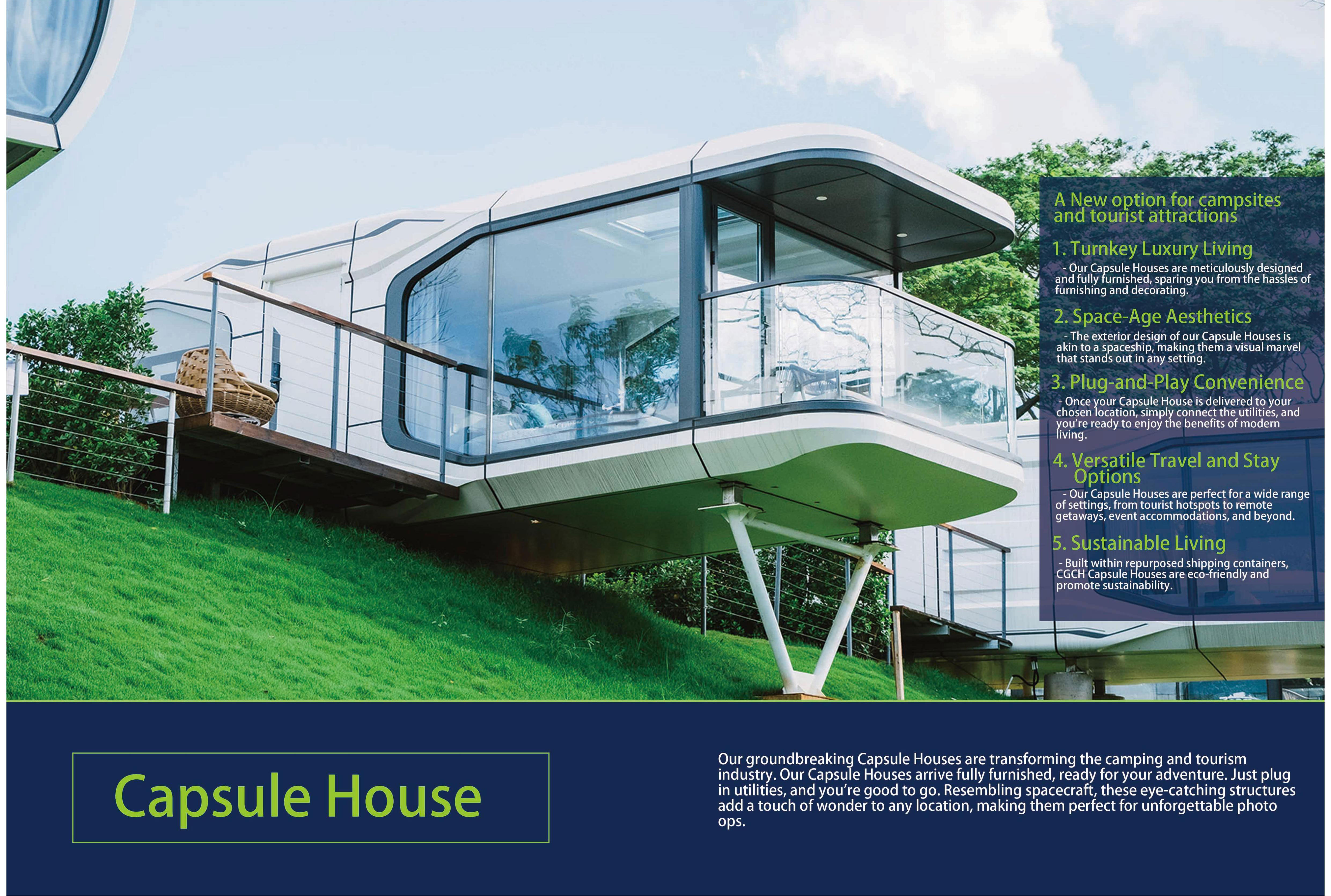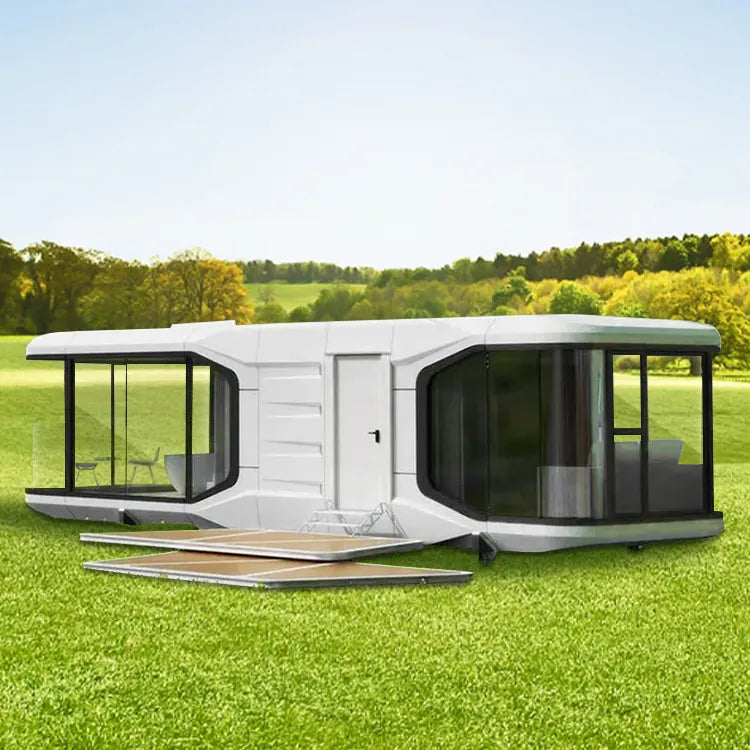Affordable and Eco-Friendly Living with Capsule Houses: A Modern Approach
Why Modular Homes Are the Future of Lasting Living
Modular homes are significantly acknowledged as an essential service for sustainable living, providing a mix of performance, cost-effectiveness, and ecological benefits. The adaptability of modular layouts enables for the assimilation of lasting innovations and materials customized to individual requirements.
Ecological Benefits of Modular Houses
The ecological advantages of modular homes represent a significant step towards lasting living. These homes are built in controlled manufacturing facility setups, which considerably lowers waste created throughout the building process. By optimizing materials and decreasing excess, modular building and construction contributes to an extra reliable use of resources compared to typical structure approaches.
Additionally, modular homes are often designed with energy effectiveness in mind. Many integrate innovative insulation techniques, energy-efficient windows, and lasting materials, adding to reduced power consumption. This can lead to decreased greenhouse gas emissions over the life expectancy of the home, improving its total environmental profile.
The ability to transport and construct modular parts on-site likewise lowers the carbon footprint related to building and construction logistics. Numerous modular homes are constructed to be adaptable and conveniently upgradeable, enabling house owners to carry out lasting technologies, such as solar panels and energy-efficient heating systems, over time.
Ultimately, the environmental advantages of modular homes not just promote lasting living however additionally encourage an even more responsible strategy to real estate advancement, lining up with international efforts to deal with environment adjustment and protect natural resources for future generations.
Cost-Effectiveness and Price
Structure a home usually stands for one of the largest economic investments people make in their lifetime, and modular homes supply an engaging remedy for those seeking cost-effectiveness and price. One of the key advantages of modular homes is their reduced building prices contrasted to traditional site-built homes. The streamlined manufacturing process permits for considerable cost savings on labor and products, which equates to lower rates for consumers.
In addition, modular homes commonly have much shorter construction timelines. This not only minimizes costs connected to financing and insurance coverage but also minimizes the dangers connected with rising cost of living and varying market conditions. Lots of purchasers find that modular homes can be customized to fit their budget plans without giving up quality or design.
Additionally, energy performance is frequently constructed into the style of modular homes, leading to decreased energy costs with time. Several manufacturers focus on lasting products and methods, further enhancing the long-lasting monetary stability of these homes. Generally, the combination of preliminary price financial savings, quick building and construction, and continuous power efficiency makes modular homes an appealing alternative for those seeking to invest in sustainable living without damaging the bank.
Performance in Construction
Modular homes not only offer financial advantages however also master building efficiency. The modular structure process involves the synchronised construction of modules in a manufacturing facility setting while website preparation occurs concurrently. This parallel approach substantially decreases the total timeline from conception to completion, frequently cutting construction time by approximately half compared to traditional approaches.
Additionally, factory-controlled settings enhance quality control. By using precision production techniques, modular homes are constructed to specific specifications, decreasing waste and mistakes. This uniformity not just causes a better product but additionally adds to sustainable techniques by lowering material waste throughout building.
Additionally, using contemporary innovation and automation in the manufacturing procedure allows for quicker assembly and lowered labor expenses. When the modules are moved to the site, they can be effectively constructed, even more expediting the timeline. This streamlined process is not just beneficial for builders but also lessens interruptions to the surrounding atmosphere during construction.
Customization and Layout Adaptability
A remarkable array of modification choices distinguishes modular homes, allowing house owners to customize their space to fulfill certain demands and preferences. This layout flexibility is a characteristic of modular construction, making it possible for customers to select every little thing from layout and area designs to finishes and fixtures. Unlike typical homes, modular styles help with a collaborative method where contractors and engineers work carefully with property owners, ensuring that each element straightens with specific way of livings and visual desires.
Furthermore, modular homes can be conveniently reconfigured or expanded, fitting altering family characteristics or evolving individual preferences. This flexibility not only improves the home's performance but likewise adds to long-term sustainability, as house owners can customize their spaces as opposed to seek brand-new real estate options.

Future Trends in Lasting Real Estate
Emerging fads in lasting housing are improving the landscape of domestic construction, emphasizing ingenious innovations and green methods. One substantial fad is the assimilation of clever home find here technology, which boosts power efficiency through automated systems that enhance and monitor energy consumption. This not just reduces energy expenses but also contributes to a reduced carbon impact.
Furthermore, the use of lasting materials is coming to be significantly typical. Builders are choosing for reused, in your area sourced, or quickly sustainable materials, which reduce ecological influence and assistance regional economies. Additionally, modular homes are gaining appeal for their lowered waste throughout construction and their adaptability to different surfaces and climates.
An additional pattern is the unification of environment-friendly roofings and living walls, which improve air high quality and supply natural insulation. These attributes additionally promote biodiversity in city locations.
Conclusion
In verdict, modular homes arise as a crucial service for lasting living, offering significant ecological advantages via reduced waste and power efficiency. Their cost-effectiveness and price resolve the growing housing needs in urban areas, while reliable building and construction procedures improve total efficiency. The fundamental modification and design versatility provide to diverse preferences and demands. As patterns in sustainable housing evolve, modular homes are poised to play an important duty in promoting eco-friendly living practices for future generations.
Building a home typically stands for one of the biggest financial investments people make in their life time, and modular homes offer an engaging solution for those seeking cost-effectiveness and price. One of the key benefits of modular homes is their reduced building costs contrasted to conventional site-built homes. Overall, the mix of first expense financial savings, rapid construction, and ongoing power efficiency makes modular homes an attractive choice for those looking to spend in sustainable living without damaging the financial institution.
Inevitably, the personalization and design flexibility provided by modular homes make certain that they are not just frameworks, yet individualized shelters that show the special identifications of their owners while promoting sustainable living methods.
